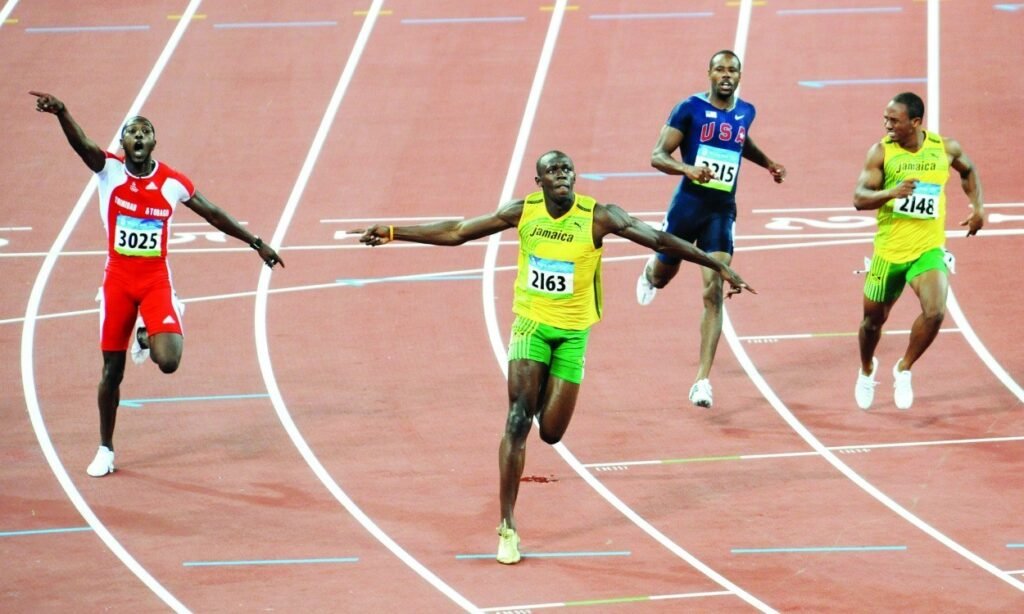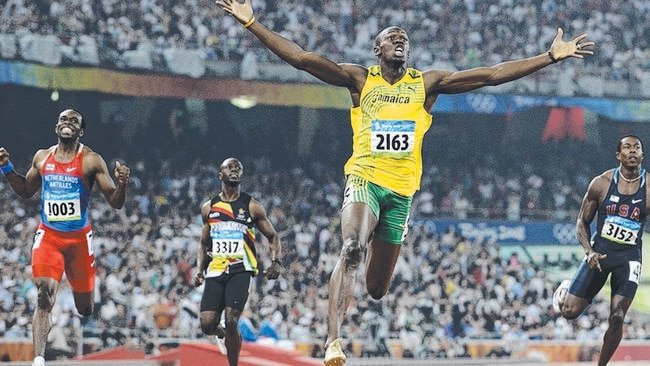The Fastest 100M Runner in Olympic History
The 100 meters is the most iconic event in track and field, often determining the title of “the fastest person on earth.” Over the years, the Olympic Games have showcased some of the greatest sprinters in history, but one name stands out above the rest: Usain Bolt.
Usain Bolt: The Fastest Man in Olympic History
Record-Breaking Performances
Usain Bolt, a Jamaican sprinter, is universally as the fastest man in Olympic history. Bolt set the world alight during the 2008 Beijing Olympics, where he won the gold medal in the 100 meters with a record-breaking time of 9.69 seconds. Remarkably, he achieved this feat while easing up before crossing the finish line, showing the world a glimpse of his extraordinary potential.
Bolt’s dominance continued in the 2012 London Olympics, where he shattered his previous record, winning the 100 meters in 9.63 seconds. This performance solidified his place as the fastest sprinter in Olympic history. In addition to his 100-meter triumphs, Bolt also won the 200 meters and 4×100 meters relay gold medals at both the 2008 and 2012 Olympics, making him a legend in the sport.
The Evolution of Sprinting Excellence

Historical Context
Before Usain Bolt, the title of the fastest 100M runner had been held by several legendary athletes. Carl Lewis, an American sprinter, won the 100 meters at the 1984 and 1988 Olympics, with a best time of 9.92 seconds in Seoul, 1988. This record was later broken by Donovan Bailey of Canada, who ran 9.84 seconds at the 1996 Atlanta Olympics.
Technological and Training Advances
The evolution of sprinting performance can be attributed to several factors, including advancements in training techniques, improvements in track surfaces, and the development of more aerodynamic sprinting gear. Also, athletes today benefit from state-of-the-art facilities and scientific approaches to training that were not available to sprinters of previous generations.
The Legacy of Usain Bolt
Impact on the Sport
Usain Bolt’s influence extends beyond his Olympic victories. His charismatic personality, combined with his unparalleled speed, brought a new level of excitement and attention to the sport of track and field. Bolt’s signature “Lightning Bolt” pose became a global phenomenon, symbolizing his dominance and the joy he brought to fans worldwide.
Continuing the Tradition
While Usain Bolt retired from professional sprinting in 2017, his legacy continues to inspire the next generation of sprinters. Young athletes around the world look up to Bolt as the gold standard in sprinting, striving to achieve the same level of excellence on the track.
Conclusion
Therefore, the title of the fastest 100M runner in Olympic history belongs to Usain Bolt, whose record-breaking performances and larger-than-life persona have left an indelible mark on the sport. His achievements in the 2008 and 2012 Olympics set new standards for what it means to be the fastest person on earth, and his legacy will continue to inspire future generations of sprinters. Also we look to the future of Olympic sprinting, the question remains: will anyone ever surpass the incredible feats of Usain Bolt?



